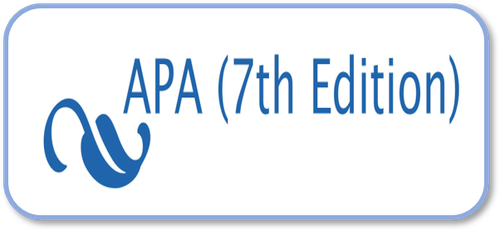Ethical Leadership And Voice Behavior: Mediating Psychological Safety And Ethical Culture
DOI:
https://doi.org/10.24912/jm.v27i3.1448Abstract
This study aimed to determine the role of organizational ethical culture and psychological safety in moderating the relationship between ethical leadership and lecturers' voice conduct. The study hypothesis is investigated with WarpPLS software employing descriptive analysis, confirmatory and structural equation modelling (SEM). This survey included 196 economic instructors from ten private universities in Pekanbaru. Organizational ethical culture, psychological safety, and faculty voice conduct were positively connected to Ethical Leadership (EL). Using one's voice is related to Ethical Culture (EC) and Psychological Safety (PS). EC and PS mediate the relationship between EL and Voice Behaviour (VB). EC and PS mitigate the effect on the link between ethics and PS.
References
Abdillah, M. R., Anita, R., Ekonomi, F., Kuning, U. L., and Rahmat, A. (2022). Authentic Leader And Employee’s Silence Behavior : Testing A Happiness At Work Mechanism. Jurnal Inovasi Bisnis dan Manajemen Indonesia, 5(4), 443–460. https://doi.org/10.31842/jurnalinobis.v5i4.243.
Abdullah, M. I., Dechun, H., Ali, M., and Usman, M. (2019). Ethical Leadership And Knowledge Hiding: A Moderated Mediation Model Of Relational Social Capital, And Instrumental Thinking. Frontiers in Psychology, 10(2403), 1-14. https://doi.org/10.3389/fpsyg.2019.02403.
Alvaleri, Y., Abdillah, M. R., Rahmat, A., and Anita, R. (2022). Kepemimpinan Dan “ Voice ” Yang Etis Pada Petugas Kepolisian: Sebuah Pengujian Mekanisme Dari Internalisasi Nilai Etika Dan Identitas Integritas. Jurnal Manajemen dan Bisnis Terapan, 4(2), 113–128.
Arda, Ö. A., and Alpkan, L. (2017). Review Of Practical Implications In Ethical Leadership Studies. International Journal of Organizational Leadership. 6(3), 400–408. https://doi.org/10.33844/ijol.2017.60298.
Arfi, L. R., and Rahmat, A. (2020). Job Insecurity Dan Abusive Supervision (Peran Moderasi Sosial Worth). Jurnal Manajemen Dan Bisnis Terapan, 2(2), 113–122. https://doi.org/10.31849/jmbt.v2i2.9115.
Belschak, F. D., Hartog, D. N. Den, and Hoogh, A. H. B. De. (2018). Angels And Demons: The Effect Of Ethical Leadership On Machiavellian Employees’ Work Behaviors. Frontiers in Psychology, 9(1082), 1–12. https://doi.org/10.3389/fpsyg.2018.01082.
Browne, J., Penn, D. L., Meyer-Kalos, P. S., Mueser, K. T., Estroff, S. E., Brunette, M. F., Correll, C. U., Robinson, J., Rosenheck, R. A., Schooler, N., Robinson, D. G., Addington, J., Marcy, P., and Kane, J. M. (2017). Psychological Well-Being And Mental Health Recovery In The NIMH RAISE Early Treatment Program. Schizophrenia Research, 185, 167–172. https://doi.org/10.1016/j.schres.2016.11.032.
Campbell, S. P., Sriram, L., King, J. C., Mertus, J. A., Martin-ortega, O., and Herman, J. (2017). Ethics Of Research In Conflict Environments. Journal of Global Security Studies, 2(1), 89–101. https://doi.org/10.1093/jogss/ogw024.
Canavesi, A., and Minelli, E. (2022). Servant Leadership: A Systematic Literature Review And Network Analysis. Employee Responsibilities and Rights Journal, 34(3), 267–289. https://doi.org/10.1007/s10672-021-09381-3.
Cheah, P. Y., Parker, M., and Day, N. P. J. (2020). Ethics And Antimalarial Drug Resistance. Public Health Ethics Analysis, 5. 55–73. https://doi.org/10.1007%2F978-3-030-27874-8_4.
Cheng, J., Bai, H., and Hu, C. (2019). The Relationship Between Ethical Leadership And Employee Voice: The Roles Of Error Management Climate And Organizational Commitment. Journal of Management and Organization, 28(1), 1-19. https://doi.org/10.1017/jmo.2019.49.
Ciulla, J. (2021). Leadership Ethics. International Encyclopedia, 1-7 https://doi.org/10.1002/9781444367072.wbiee370.pub2.
Cooper, C. D., Kong, D. T., and Crossley, C. D. (2018). Leader Humor As An Interpersonal Resource: Integrating Three Theoretical Perspectives. Academy of Management Journal, 61(2), 769–796. https://doi.org/10.5465/amj.2014.0358.
Eva, N., Robin, M., Sendjaya, S., Dierendonck, D. Van, and Liden, R. C. (2019). Servant Leadership: A Systematic Review And Call For Future Research The Leadership Quarterly Yearly Review For 2019. The Leadership Quarterly, July 2018, 0–1. https://doi.org/10.1016/j.leaqua.2018.07.004.
Frazier, M. L., Fainshmidt, S., Klinger, R. L., Pezeshkan, A., and Vracheva, V. (2016). Psychological Safety: A Meta-Analytic Review And Extension. Personnel Psychology, 70(1), 113–165. doi:10.1111/peps.12183.
Getie, A. S. (2020). Factors Affecting The Attitudes Of Students Towards Learning English As A Foreign Language. Cogent Education, 7(1), 0–37. https://doi.org/10.1080/2331186X.2020.1738184.
Gong, Z., Yang, J., Gilal, F. G., Swol, L. M. Van, and Yin, K. (2020). Repairing Police Psychological Safety: The Role Of Career Adaptability, Feedback Environment, And Goal-Self Concordance Based On The Conservation Of Resources Theory. SAGE Open, 10(2).1-11. https://doi.org/10.1177/2158244020919510.
Hu, Y., Zhu, L., Zhou, M., Li, J., Maguire, P., Sun, H., and Albrecht, S. L. (2018). Exploring The Influence Of Ethical Leadership On Voice Behavior : How Leader-Member Exchange, Psychological Safety And Psychological Empowerment Influence Employees Willingness To Speak Out. Frontiers in Psychology, 9(1718), 1–10. https://doi.org/10.3389/fpsyg.2018.01718.
Huang, L., & Paterson, T. A. (2017). Group Ethical Voice. Journal of Management, 43(4), 1157–1184. doi:10.1177/0149206314546195.
Ian, H. (2019). A Subjectivist Model Of School Leadership For International Schools: A Subjectivist Model Of School Leadership For International Schools: Greenfield Revisited. Peabody Journal of Education, 0(0), 1–16. https://doi.org/10.1080/0161956X.2018.1515827.
Id, U., Muhammad, S., and Raza, M. (2020). Employee Voice Behavior As A Critical Factor For Organizational Sustainability In The Telecommunications Industry. PLOS ONE, 15(9). 1–17. https://doi.org/10.1371/journal.pone.0238451.
Items, R., Rose, W., Rose, W., If, T., and Rose, W. (2019). The Impact Of Authoritarian Leadership On Ethical Voice: A Moderated Mediation Model Of Felt Uncertainty And Leader Benevolence. Journal of Business Ethics, 170. 133-146. https://doi.org/10.1007/s10551-019-04261-1.
Jin, X., Qing, C., and Jin, S. (2022). Ethical Leadership And Innovative Behavior: Mediating Role Of Voice Behavior And Moderated Mediation Role Of Psychological Safety. Sustainability (Switzerland), 14(9). https://doi.org/10.3390/su14095125.
Khan, H. (2020). Veritable Measure Of Leadership Effectiveness : New Perspectives. ProQuest, 17(2). 288-305.
Kim, D., and Vandenberghe, C. (2020). Ethical Leadership And Team Ethical Voice And Citizenship Behavior In The Military: The Roles Of Team Moral Efficacy And Ethical Climate. Group and Organization Management, 45(4). 1-42. https://doi.org/10.1177/1059601120920050.
Kim, S., Lee, H., and Connerton, T. P. (2020). How Psychological Safety Affects Team Performance: Mediating Role Of Efficacy And Learning Behavior. Frontiers in Psychology, 11 (1581), 1–15. https://doi.org/10.3389/fpsyg.2020.01581.
Ko, C., Ma, J., Bartnik, R., Haney, M. H., and Kang, M. (2017). Ethical Leadership : An Integrative Review And Future Research Agenda. Ethics and Behavior. 28(2). 104-132. https://doi.org/10.1080/10508422.2017.1318069.
Kong, F., Huang, Y., and Liu, P. (2016). Why Voice Behavior? An Integrative Model Of The Need For Affiliation, The Quality Of Leader–Member Exchange, And Group Cohesion In Predicting Voice Behavior. Group and Organization Management, 42(6). 792-818. https://doi.org/10.1177/1059601116642084.
Lam, L. W., Loi, R., Chan, K. W., and Liu, Y. (2016). Voice More And Stay Longer: How Ethical Leaders Influence Employee Voice And Exit Intentions. Business Ethics Quarterly, 26(3), 277–300. https://doi.org/10.1017/beq.2016.30.
Lee, J., and Choi, D. (2023). Leader Boundary-Spanning Behavior And Employee Voice Behavior: The Job Demands - Resources Perspective. Behavioral Science, 13(2). 1-16. https://doi.org/10.3390/bs13020146.
Liu, X., Li, X., Chen, W., Yu, Q., and Lai, S. (2020). The Multilevel Effects Of Creative Leadership On Employees’ Workplace Innovative Behavior: An Integrated Analysis Framework. Open Journal of Social Sciences, 08(12), 295–307. https://doi.org/10.4236/jss.2020.812024.
Metwally, D., Ruiz-palomino, P., Metwally, M., Gartzia, L., and Duncan, D. J. (2019). How Ethical Leadership Shapes Employees’ Readiness To Change: The Mediating Role Of An Organizational Culture Of Effectiveness. Frontiers in Psychology, 10(2493), 1–18. https://doi.org/10.3389/fpsyg.2019.02493.
Mtsweni, E. S., Hörne, T., Poll, (2020). Engineering, Construction And Architectural Management. Elsevier 25(1), 1–9. http://dx.doi.org/10.1016/j.jss.2014.12.010%0A.
Newman, A., Schwarz, G., Cooper, B., and Sendjaya, S. (2017). How Servant Leadership Influences Organizational Citizenship Behavior: The Roles Of LMX, Empowerment, And Proactive Personality. Journal of Business Ethics, 145(1), 49–62. https://doi.org/10.1007/s10551-015-2827-6.
Peng, H., and Wei, F. (2020). How And When Does Leader Behavioral Integrity Influence Employee Voice? The Roles Of Team Independence Climate And Corporate Ethical Values. Journal of Business Ethics, 166(3), 505–521. https://doi.org/10.1007/s10551-019-04114-x.
Rahmat, A. (2022). Ethical Leadership And Innovative Behaviour: Mediation Role Of Leader Member Exchange And. Jurnal Manajemen dan Bisnis, 11(1), 169–179. https://doi.org/10.34006/jmbi.v11i1.397.
Roussin, C. J., MacLean, T. L., and Rudolph, J. W. (2016). The Safety In Unsafe Teams: A Multilevel Approach To Team Psychological Safety. Journal of Management, 42(6), 1409–1433. https://doi.org/10.1177/0149206314525204.
Sağnak, M. (2017). Ethical Leadership And Teachers Voice Behavior : The Mediating Roles Of Ethical Culture And Psychological Safety. Educational Sciences: Theory & Practice, 17(4), 1101–1117. https://doi.org/10.12738/estp.2017.4.0113.
Su, W., and Chen, H. (2020). How Does Servant Leadership Influence Employees ’ Service Innovative Behavior ? The Roles Of Intrinsic Motivation And Identification With The Leader. 15(15), 571–586. https://doi.org/10.1108/BJM-09-2019-0335.
Su, X., Lin, W., Wu, J., Zheng, Q., Chen, X., and Jiang, X. (2021). Ethical Leadership And Knowledge Sharing: The Effects Of Positive Reciprocity And Moral Efficacy. https://doi.org/10.1177/21582440211021823.
Tanner, C., Gangl, K., and Witt, N. (2019). The German Ethical Culture Scale (GECS): Development And First Construct Testing. Frontiers in Psychology, 10(July), 1–17. https://doi.org/10.3389/fpsyg.2019.01667.
Taylor, J., Collins, D., and Ashford, M. (2022). Psychological Safety In High-Performance Sport : Contextually Applicable ? 4(May), 1–6. https://doi.org/10.3389/fspor.2022.823488.
Turner, S., and Harder, N. (2018). Psychological Safe Environment: A Concept Analysis. Clinical Simulation In Nursing, 18, 47–55. https://doi.org/10.1016/j.ecns.2018.02.004.
Walumbwa, F. O., Hartnell, C. A., and Misati, E. (2017). Does Ethical Leadership Enhance Group Learning Behavior ? Examining The Mediating Influence Of Group Ethical Conduct, Justice Climate, And Peer Justice. Journal of Business Research, 72, 14–23. https://doi.org/10.1016/j.jbusres.2016.11.013.
Wang, H., Guan, B., and Taylor, S. N. (2018). The Positive Effect Of Authoritarian Leadership On Employee Performance: The Moderating Role Of Power Distance. 9(March), 1–10. https://doi.org/10.3389/fpsyg.2018.00357.
Wang, J., Long, R., Chen, H., and Li, Q. (2019). Measuring The Psychological Security Of Urban Residents: Construction And Validation Of A New Scale. Frontiers in Psychology, 10(10). https://doi.org/10.3389/fpsyg.2019.02423.
Wang, M., Kwan, H. K., and Zhou, A. (2016). Effects Of Servant Leadership On Work – Family Balance In China. Asia Pacific Journal of Human Resources, 55(4), 387-407. https://doi.org/10.1111/1744-7941.12122.
Watto, W. A., Khan, Z., Monium, A., and Abubakar, M. (2019). How Do Ethical Leadership And Organizational Justice Affect Work Outcomes? Does Perceived Organizational Support Mediate The Relationships? Business Perspective Review, 1(1), 53–71.
Weerawardena, J., Salunke, S., Haigh, N., and Sullivan, G. (2019). Business Model Innovation In Social Purpose Organizations: Conceptualizing Dual Social-Economic Value Creation. Journal of Business Research, 125, 762-771. https://doi.org/10.1016/j.jbusres.2019.10.016.
Williams, A. M. (2019). Drivers Of Social Engagement: Employee Voice – Advice Sharing Relationship. Review of Public Personnel Administration, 40(4), 669-690. https://doi.org/10.1177/0734371X19850873.
Williams, K., Halbusi, H. Al, and Williams, K. A. (2020). Linking Ethical Leadership And Ethical Climate To Employees ’ Ethical Linking Ethical Leadership And Ethical Climate To Employees ’ Ethical Behavior : The Moderating Role Of Person – Organization Fit. Personnel Review, 50(1), 159-185. https://doi.org/10.1108/PR-09-2019-0522.
Yadi, E., Rahmat, A., and Abdillah, M. R. (2022). Ethical Leadership And Knowledge Hiding Behavior : Mechanism Moral Identity. Universitas Tarumanagara, Jurnal Manajemen, 26(2), 240–258. https://doi.org/10.24912/jm.v26i2.858.
Yuliana, D. R., Abdillah, M. R., and Rahmat, A. D. I. (2023). Kepemimpinan Bersama Dan Tekanan Psikologis Tenaga Kesehatan: Mekanisme Meaningfull At Work. Daya Saing Jurnal Manajemen, 9(1), 105-111. https://doi.org/10.35446/dayasaing.v9i1.1047.
Zaim, H., Demir, A., and Budur, T. (2021). Ethical Leadership, Effectiveness And Team Performance: An Islamic Perspective. Middle East J. of Management, 8(1), 42. https://doi.org/10.1504/mejm.2021.111991.
Zhang, J., Zheng, L., Zhang, S., Xu, W., and Zheng, Y. (2021). Vocal Characteristics Predict Infidelity Intention And Relationship Commitment In Men But Not In Women. Personality and Individual Differences, 168, 1-7. https://doi.org/10.1016/j.paid.2020.110389.
Zheng, Y., Epitropaki, O., and Caveney, N. (2022). Ethical Leadership And Ethical Voice : The Mediating Mechanisms Of Value Internalization And Integrity Identity. SAGE Journals, Journal of Manajemen, 48(4), 973–1002. https://doi.org/10.1177/01492063211002611.
Zheng, Y., Graham, L., Lih, J., and Xu, F. (2019). The Impact Of Authoritarian Leadership On Ethical Voice : A Moderated Mediation Model Of Felt Uncertainty And Leader Benevolence. Journal of Business Ethics, Kellett 2002. https://doi.org/10.1007/s10551-019-04261-1.
Zhu, H., Khan, M. K., Nazeer, S., Li, L., Fu, Q., Badulescu, D., and Badulescu, A. (2022). Employee Voice: A Mechanism To Harness Employees’ Potential For Sustainable Success. International Journal of Environmental Research and Public Health, 19(2), 1–20. https://doi.org/10.3390/ijerph19020921.
Downloads
Published
How to Cite
Issue
Section
License
Copyright (c) 2023 Jurnal Manajemen

This work is licensed under a Creative Commons Attribution-NonCommercial-ShareAlike 4.0 International License.
This journal provides immediate open access to its content on the principle that making research freely available to the public supports a greater global exchange of knowledge.

This work is licensed under a Creative Commons Attribution-NonCommercial-ShareAlike 4.0 International License



















